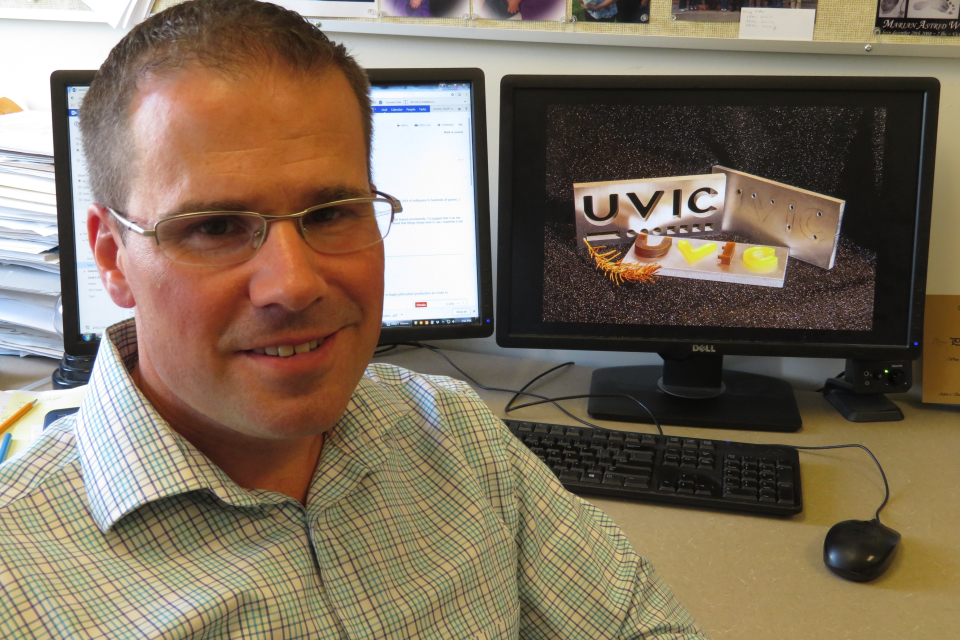The upside of plastic: Energy-efficient vehicles

A durable industrial plastic adapted by a University of Victoria chemist for use in automotive components could be a vital step toward lighter vehicle weights and greater energy efficiency.
Jeremy Wulff’s team has synthesized a plastic that could replace metal to make vehicles lighter and more fuel efficient.
Polydicyclopentadiene (PDCPD) is an incredibly strong plastic used in heavy-duty construction vehicles such as backhoes, excavators and snowmobiles. But its foul smell, resistance to adhesives and non-recyclable nature made it unappealing for broader applications–until Wulff and his students set to work on the material’s chemistry.
By adding an extra chemical handle onto the polymer’s molecular structure, the group addressed the smell and adhesion problems and laid the groundwork for making the material recyclable. Those changes did not affect the polymer’s remarkable strength and ability to withstand temperatures up to 400 C.
“Its durability comes from its molecular make-up,” says Wulff, Canada Research Chair in Bioactive Small Molecule Synthesis. “PDCPD is extensively crosslinked—which is a fancy way of saying that whatever huge part you make from it is basically one big molecule. Pretty impressive when you think about it—imagine the entire body of your truck cab being made from one gigantic molecule!”
Wulff’s team has recently stepped up their production from milligram scale to hundred-gram scale and is looking for an industrial partner to begin pilot-plant production en route to commercialization. The group also demonstrated reaction-injection molding of their polymer—a key step in the production of automotive parts and other consumer goods.
Funding for this project came from the Natural Sciences and Engineering Research Council’s Ideas to Innovation Program, and Green Centre Canada.
Read the findings published in ACS Omega and Macromolecules.
A press kit containing high-resolution photos are available on Dropbox.
-- 30 --
Photos
Media contacts
Jeremy Wulff (Chemistry) at 250-721-7179 or wulff@uvic.ca
Vimala Jeevanandam (Communications Officer, Faculty of Science) at 250-721-8745 or scieco@uvic.ca

